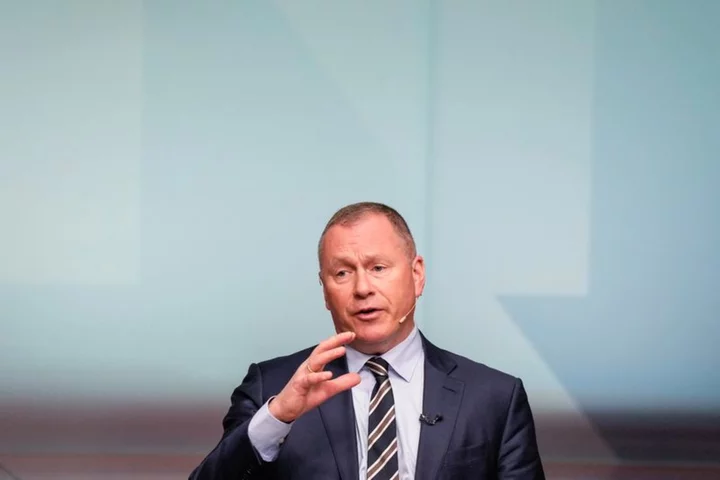
REUTERS NEXT - Norway wealth fund CEO says it is using AI to deploy capital
(Adds missing word 'near' in quote in 2nd paragraph) By Lananh Nguyen and Gwladys Fouche NEW YORK Norway's
2023-11-09 03:57

Amazon says cuts jobs in music streaming unit
By Greg Bensinger Amazon.com has begun cutting jobs in its Music division, the company said on Wednesday, confirming
2023-11-09 02:55
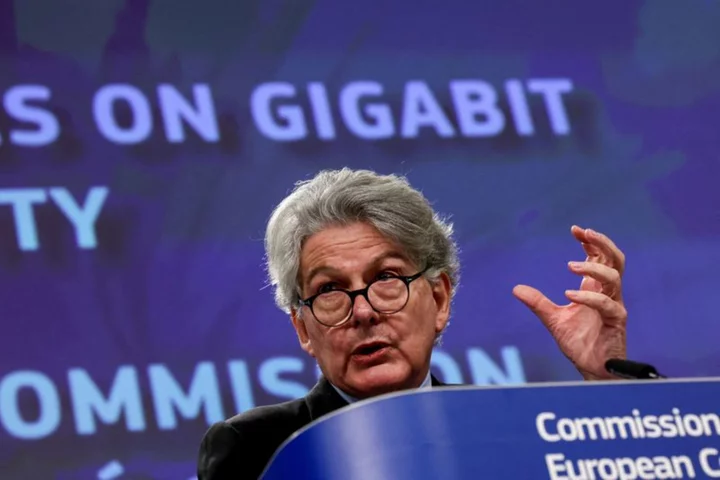
Exclusive-EU to ask YouTube, TikTok for details on measures protecting minors
BRUSSELS (Reuters) -Google’s YouTube and TikTok will be asked by EU industry chief Thierry Breton to provide information on how
2023-11-09 02:52
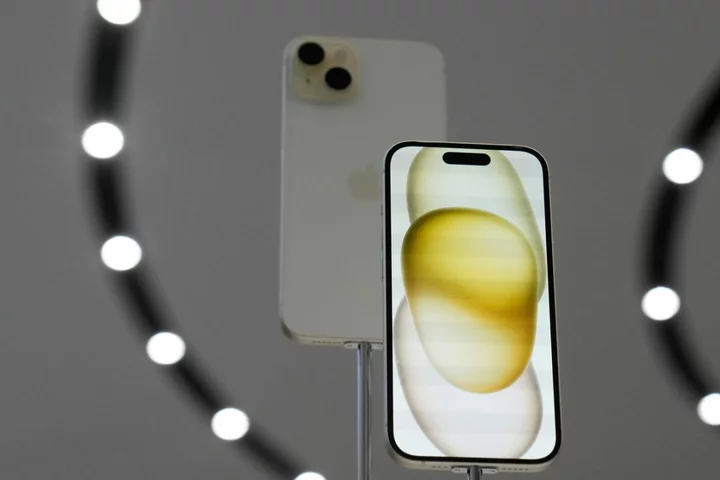
iOS 17.1.1: Apple releases new iPhone update to let phones charge in cars without breaking
Apple has released a new iPhone update that ensures they won’t break when being charged in the car. The iOS 17.1.1 update includes a range of bug fixes for some unusual and high-profile issues with Apple’s new iPhones. It is available to download now as usual. When the iPhone 15 was released, some users of specific cars – particularly those made by BMW and Toyota – reported that charging their phones in the car would break them. In some cases, when people used the built-in wireless charging then Apple Pay would stop working, for instance. That is now fixed in the new update, according to Apple’s release notes. It fixes an issue where “In rare circumstances, Apple Pay and other NFC features may become unavailable on iPhone 15 models after wireless charging in certain cars”, it says. The new operating system update also fixes an issue where “Weather Lock Screen widget may not correctly display snow”, the release notes say. That refers to a problem where users would instead see a file icon, which had been widely reported. Apple has also released an update for the Watch, numbered 10.1.1. That fixes another prominent issue that led to unexpected battery drain on the Watch, with some reporting that their devices lost all their charge in just a few hours. The Mac and HomePod also have their own bug updates. They can all be installed as usual: through the Settings app on the iPhone or Mac, or through the devoted apps for the Watch and HomePod, though all devices should eventually prompt the user to update automatically. The update came after a Bloomberg report that indicated Apple had taken some engineers off work on upcoming major updates to ensure that the current operating system versions were as free of bugs as possible. Recent weeks have seen a range of unexpected bugs in Apple software, including widespread reports that the iPhone 15 would get uncomfortably hot, which was later fixed with another software update. Read More The Apple Watch has a major issue but Apple is working on a fix Something is happening with Apple’s Mac and iPads Apple just revealed a new MacBook Pro – with a new colour
2023-11-09 02:51

Telecom Italia core profit up 9% as grid share deal helps domestic sales
MILAN (Reuters) -Telecom Italia (TIM) on Wednesday reported an 8.6% rise in core profit for the third quarter, as an
2023-11-09 02:25

Elon Musk wants a volunteer to have their head cut open for his brain implants
Elon Musk's chip implant company Neuralink is looking for its first volunteer since the company got approved to perform tests on humans by the FDA. Prior to its approval for human clinical trials, Reuters reported that the company had killed roughly 1,500 animals during testing. The volunteer would have to be willing to have a piece of their skull removed so a robotic surgeon can insert thin wires and electrodes into their brain. The company told Bloomberg News, the ideal candidate will be a quadriplegic under the age of 40. Neuralink hopes to eventually make a device that will allow people to send messages or play games using only their thoughts. Ashlee Vance, the author of the 2015 biography 'Elon Musk: Tesla, SpaceX, and the Quest for a Fantastic Future', said in his Bloomberg report that despite "an outpouring of interest from thousands of prospective patients," the company is still seeking its first volunteer. The chip would enable computer functions to be performed using only thoughts via a "think-and-click" mechanism. If the ideal volunteer is chosen, a surgeon will remove part of the person's skull, before a robot dubbed "R1", equipped with cameras, sensors and a needle will push 64 threads into the brain whilst doing its best to avoid blood vessels. Reassuring. Each thread has roughly the diameter of 1/14th of a strand of human hair, and is lined with 16 electrodes that are programmed to gather data about the brain. The electrodes record neural activity related to movement intention, which is then decoded by Neuralink computers. Neuralink did not reveal how many participants would be enrolled in the trial or how many patients the FDA ultimately approved, after a negotiation between the company and agency which raised safety concerns, according to current and former employees. DJ Seo, co-founder and vice president for engineering of Neuralink told Bloomberg: "The short-term goal of the company is to build a generalised brain interface and restore autonomy to those with debilitating neurological conditions and unmet medical needs." "Then, really, the long-term goal is to have this available for billions of people and unlock human potential and go beyond our biological capabilities." Indy100 has reached out to Neuralink for comment. Sign up to our free Indy100 weekly newsletter Have your say in our news democracy. Click the upvote icon at the top of the page to help raise this article through the indy100 rankings. How to join the indy100's free WhatsApp channel
2023-11-09 02:19
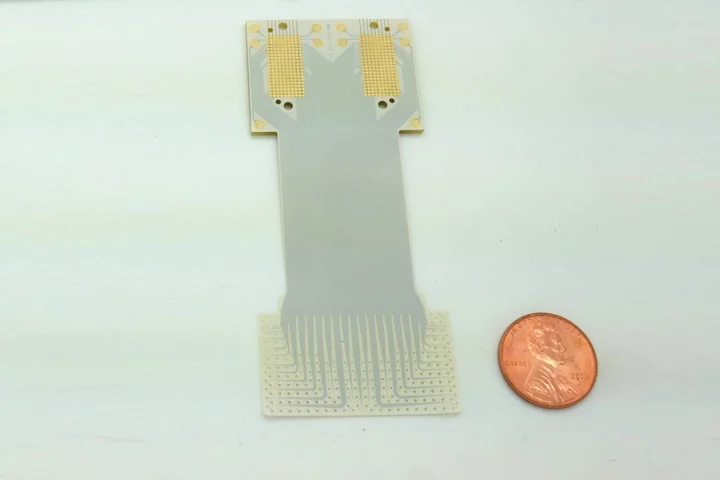
Scientists invent mind-reading device
Scientists have invented a brain implant that allows wearers to communicate using thoughts alone. The speech prosthetic – developed by neuroscientists, neurosurgeons and engineers at Duke University in the US – is able to translate brain signals into words. The researchers claim it is faster and less cumbersome than other brain computer interface and mind reading technologies, and could transform the lives of people suffering from neurological disorders. “There are many patients who suffer from debilitating motor disorders, like ALS or locked-in syndrome, that can impair their ability to speak,” said Gregory Cogan, a professor of neurology at Duke University’s School of Medicine. “But the current tools available to allow them to communicate are generally very slow and cumbersome.” The team was able to pack 256 specially designed microscopic brain sensors onto a postage stamp-sized piece of medical-grade plastic, which was tested on patients undergoing brain surgery for unrelated conditions like having a tumour removed. Participants were asked to listen to a series of nonsensical words like ‘kug’ and ‘vip’ and then speak them aloud. With just 90 seconds of spoken data, an AI algorithm was then used to decode the neural activity into words. The researchers now plan to develop the technology to improve its speed and make it wireless, and have received a $2.4 million grant from the National Institutes of Health to continue. “You’d be able to move around, and you wouldn’t have to be tied to an electrical outlet, which is really exciting,” Professor Cogan said. Duke Institute for Brain Sciences faculty member Jonathan Viventi added: “We’re at the point where it’s still much slower than natural speech, but you can see the trajectory where you might be able to get there.” The research was detailed in a study, titled ‘High-resolution neural recordings improve the accuracy of speech decoding’, published in the journal Nature Communications. Read More ChatGPT goes offline Urgent warning for Gmail users as millions of accounts set to be deleted Political ads on Instagram and Facebook can be deepfakes, Meta says
2023-11-09 00:58
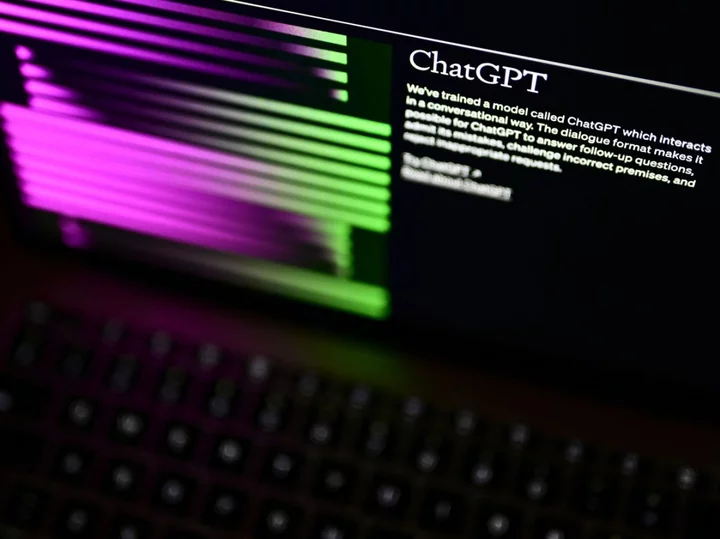
ChatGPT down: AI system goes offline in ‘major outage’
ChatGPT is offline in a “major outage”. Anyone attempting to use the artificial intelligence system saw a warning that it was “at capacity right now”. The error page also includes a ChatGPT-written rap about the status of ChatGPT, which begins with the phrase “Yeah, yo, what’s up ChatGPT fam”. But on its status page, creators OpenAI said it was suffering a “major outage” that was being investigated urgently and had lasted for more than an hour. The latest update on that page indicated that engineers had “identified an issue” with the system and was working to fix it. The problems also affected OpenAI’s API service, which allows third-party services to connect to its AI systems. Both went down at the same time. It is the first major outage on the system for months. While it has seen some problems in recent weeks, they have been partial outages that have slowed or otherwise interfered with ChatGPT’s performance, rather than going fully offline. One of those difficulties came last night, when OpenAI said that both ChatGPT and its API had been suffering from a partial outage. The problems comes days after OpenAI held its first developer conference, on Monday, though there is no indication the two events are connected. At that conference, it announced a range of new features including a new tool it calls “GPTs”, which let people easily create their own custom versions of ChatGPT. During that same event, OpenAI announced that one hundred million people use ChatGPT each week. Some two million developers are also working on the platform, its chief executive Sam Altman said. ChatGPT became the fastest-growing app in history when it launched last November, as well as igniting worldwide excitement and panic over artificial intelligence. It saw 100 million users join in two months, a dramatic record that was later beaten by Meta’s Instagram Threads. Read More ChatGPT update allows anyone to make their own personalised AI assistant How Elon Musk’s ‘spicy’ Grok compares to ‘woke’ ChatGPT ChatGPT and other chatbots respond to emotions, report says
2023-11-08 23:48
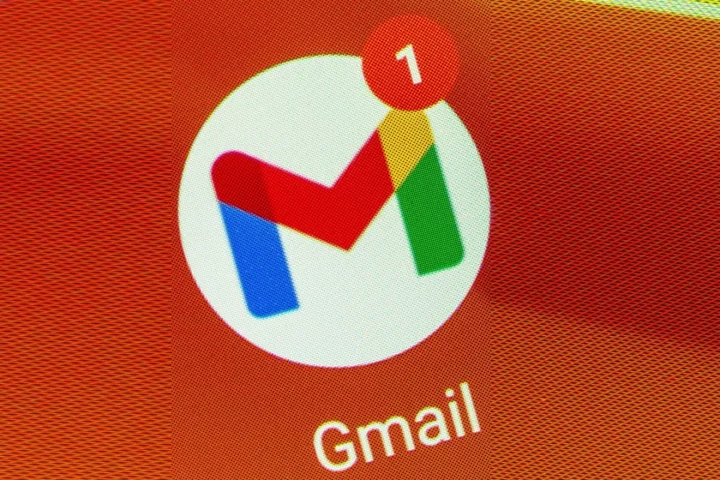
Google to delete millions of Gmail accounts next month in huge purge
Google is set to begin deleting millions of Gmail, Drive and Photos accounts next month as part of a major update to the platform. The purge will impact all personal Google accounts that have been left dormant for at least two years, with emails, documents, spreadsheets, calendar appointments, photos and videos all permanently deleted. The policy was introduced earlier this year but is set to come into effect in December 2023. “We are updating our inactivity policy for Google Accounts to two years across our products,” Ruth Kricheli, Google’s vice president of product management, wrote in a blog post in May. “This update aligns our policy with industry standards around retention and account deletion and also limits the amount of time Google retains your unused personal information.” The move is aimed at protecting active Google users from security threats like phishing scams and account hijacking. Old accounts that have not been used for years are typically at risk from hackers as they may use the same passwords that have been compromised in other security breaches, which are easily available on the dark web. Any account at risk of deletion will receive “multiple notifications” before any action is taken, Google said, including to any associated recovery email addresses. The tech giant has already begun sending emails to those affected, telling users it is “to protect your private information and prevent any unauthorised access to your account even if you’re no longer using our services”. Losing access to a Gmail account could also potentially prevent people from using other online platforms and services that are associated with that email address, even if they are not related to Google. In order to keep an account active and avoid being deleted, Google users are advised to open or send an email, use Google Drive, download an app on the Google Play Store, or simply make a Google Search while logged in to the account. Any account that has posted a video to YouTube will also not be impacted, regardless of when it was last active. Read More ‘Is AI dangerous?’ UK’s most Googled questions about artificial intelligence Big tech poses ‘existential threat’ to UK journalism, survey of editors finds Political ads on Instagram and Facebook can be deepfakes, Meta says
2023-11-08 23:19

Spanish regulator opens first cryptoasset advertising case
MADRID Spain's stock market supervisor said on Wednesday it had opened its first case relating to a possible
2023-11-08 20:25

Political ads on Instagram and Facebook can use deepfake technology, Meta says – but they must say so
Ads on Instagram and Facebook can use artificial intelligence technology to create photos, videos and audio of events that don’t actually exist, Meta has said. But those advertisers must make clear that they are not actually real if they are advertising on political or social issues, Meta said. When they do so, Meta will add a small note on the ad that gives information about the fact that it has been created with artificial intelligence. Meta said that it was introducing the new policy “to help people understand when a social issue, election, or political advertisement on Facebook or Instagram has been digitally created or altered, including through the use of AI”. It will go into effect in the new year, across the world, it said. The new policy will require advertisers to make clear if their political ads have an image, video or audio that looks real but was digital created or altered so that it looks like someone is saying something they didn’t, shows a person or event that is not actually real, or poses as a depiction of a real event but is actually fake. If the content is digitally created or altered by in ways that “are inconsequential or immaterial to the claim, assertion, or issue raised in the ad”, Meta said. It gave examples such as using technology to adjust the size or sharpen their image, but noted that those could still be problematic if they change the claim in the ad. But it also said that those fake videos, images and audio will still be allowed to be posted on the site. Instead, Meta will “add information on the ad when an advertiser discloses in the advertising flow that the content is digitally created or altered”, it said, and that same information will appear in Meta’s Ad Library. It said that it would give further information about that process later. It did not say how advertisers will flag such ads, what will be shown to users when they are flagged, and how those who do not flag them will be punished. Meta did say that it would remove any ads that violates its policies, when they are created by artificial intellgience or real people. If its fact checkers decide that a piece of content has been “altered”, then it will stop it from being run as an ad, the company said. “In the New Year, advertisers who run ads about social issues, elections & politics with Meta will have to disclose if image or sound has been created or altered digitally, including with AI, to show real people doing or saying things they haven’t done or said,” said Nick Clegg, Meta’s president for global affairs in a series of tweets that announced the new policy. “This builds on Meta’s industry leading transparency measures for political ads. These advertisers are required to complete an authorisation process and include a ‘Paid for by’ disclaimer on their ads, which are then stored in our public Ad Library for 7 years.” Read More The rise of the AI friend – but what happens when ‘bots’ turn into ‘bad’ mates? Instagram working to let people make AI ‘friends’ to talk to Meta launches paid-for version of Instagram and Facebook
2023-11-08 19:49

HSBC plans custody service for non-crypto digital assets
By Elizabeth Howcroft LONDON HSBC plans to launch in 2024 a custody service for storing blockchain-based assets excluding
2023-11-08 19:26
